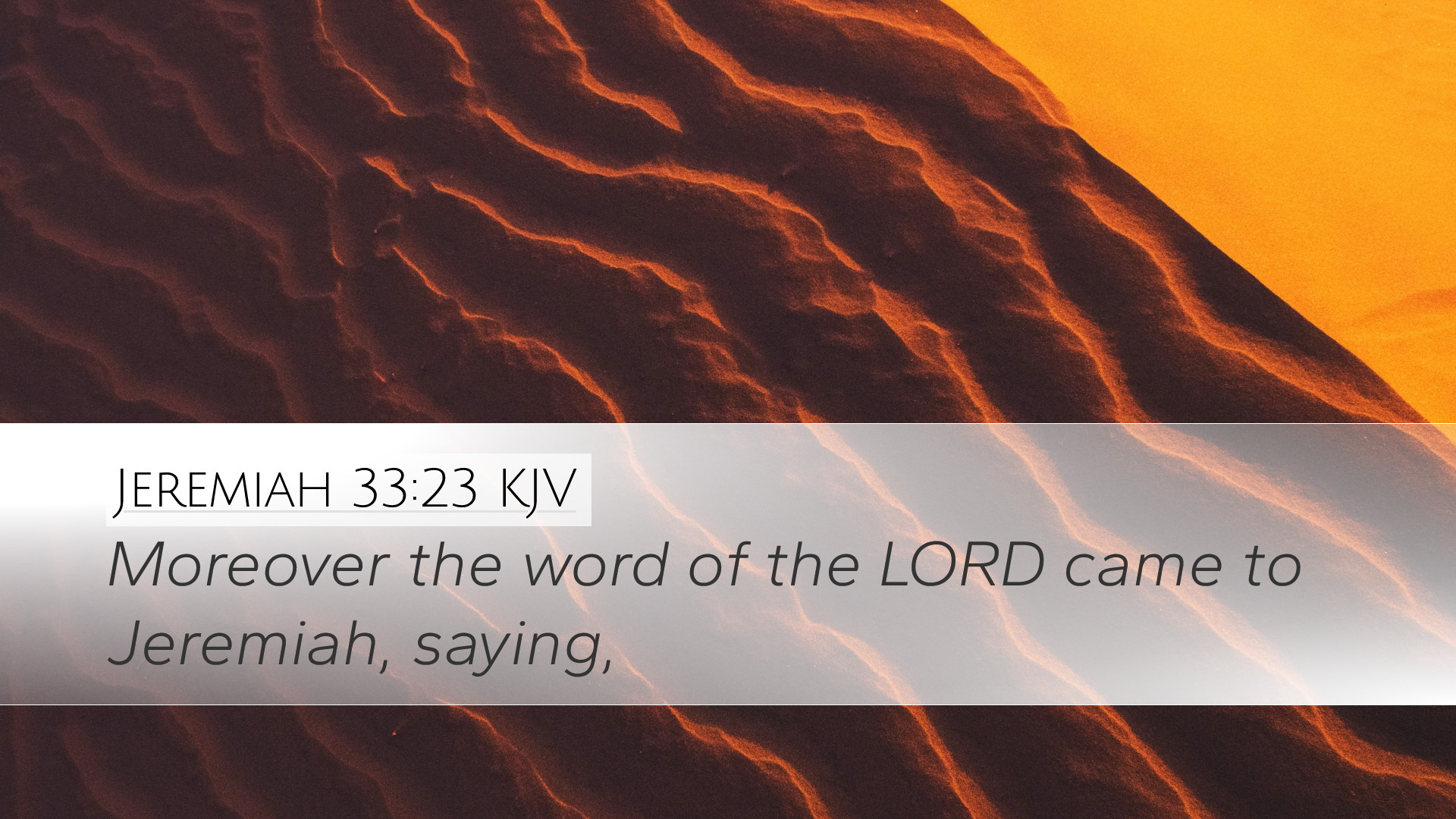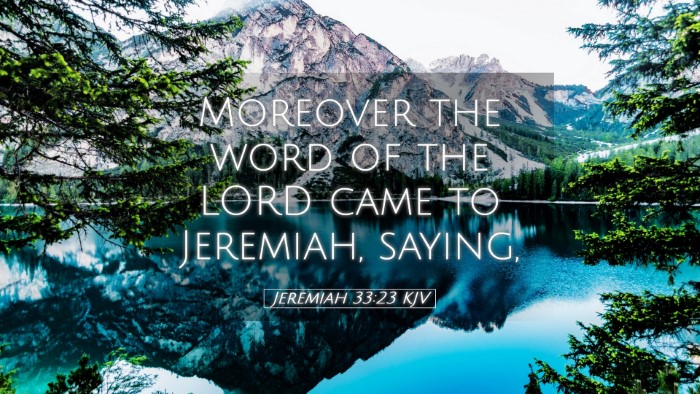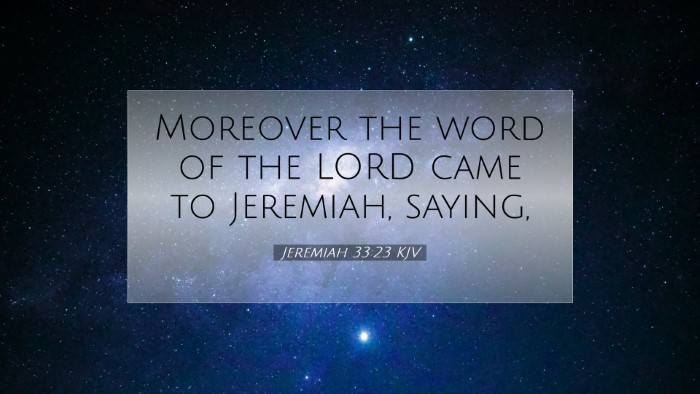Commentary on Jeremiah 33:23
Jeremiah 33:23 states:
"Moreover the word of the LORD came to Jeremiah, saying,"
This verse serves as an introduction to the profound message that follows regarding God's sovereignty and the fidelity of His promises, offering rich insights for pastors, students, theologians, and Bible scholars.
Contextual Overview
The Book of Jeremiah, written by the prophet Jeremiah during a time of great upheaval in Israel, addresses themes of judgment, restoration, and hope. In chapter 33, we see a shift towards the promise of restoration. The context of this chapter unfolds during the Babylonian siege of Jerusalem, where hope seemed lost.
Commentary Insights
1. The Assurance of God's Word
Matthew Henry: In his commentary, Henry emphasizes the significance of God’s word coming directly to Jeremiah. He notes that God’s communication to His prophet underscores the assurance that God is not absent during times of trial. The phrase "Moreover the word of the LORD came" denotes God's continual engagement with His people, reminding them of His unwavering presence even amidst calamity.
Albert Barnes: Barnes elaborates that this phrase indicates the importance of divine revelation. Unlike human words that can falter, the words from the Lord are immutable and reliable. Thus, in times of despair, believers should turn to the promises God has delivered through His prophets.
2. The Role of the Prophet
Adam Clarke: Clarke points out that Jeremiah, as a prophet, plays a crucial role in conveying God's messages. He states that the responsibility of the prophet is to be the mouthpiece of God, delivering messages that bring hope and instruction. This particular interaction showcases the dynamic of communication between God and His servant, which is integral for understanding His plans for the people.
3. The Nature of Divine Promises
Matthew Henry: Henry continues by emphasizing the nature of God's promises, which are enduring and profound. In Jeremiah 33, God reassures His people of His plan for restoration. Henry reflects on how God's promises not only address physical restoration but also spiritual renewal.
Albert Barnes: Barnes makes a keen observation about the specificity and clarity of God’s promises. He mentions that God promises both a restoration of the nation and personal reconciliation with Him, which indicates the fullness of God’s redemptive plan, encompassing the social, spiritual, and relational aspects of life.
4. A Theological Reflection on Judgement and Mercy
Adam Clarke: Clarke provides a theological perspective that balances the themes of judgment and mercy. He notes that while Jeremiah's prophecies primarily addressed impending judgment, they also laid the groundwork for understanding God’s mercy that leads to restoration. Clarke points out that God’s ultimate intention is not to destroy, but to redeem, highlighting the duality of God’s nature as both just and merciful.
5. Implications for Believers
Matthew Henry: In applying this verse, Henry appeals directly to the faithful, reminding them that despite turmoil, they possess the promise of God’s faithfulness. He encourages believers to lean into the Lord’s assurances during their own seasons of suffering, drawing parallels between ancient Israel's plight and the trials faced by modern believers.
Albert Barnes: Barnes urges readers to reflect on the stability found in God’s promises. He highlights the importance of faith in turbulent times, expounding upon how believers today can find peace and hope by trusting in God’s unfailing commitment to His word.
Conclusion
Jeremiah 33:23 serves as a beacon of hope in a narrative filled with distress. Through the insights of revered commentators like Matthew Henry, Albert Barnes, and Adam Clarke, it becomes evident that this verse is not only about the prophetic voice of Jeremiah but also about the enduring and restorative nature of God's promises. For pastors, students, theologians, and Bible scholars, it offers rich theological truths that speak to the heart of God's character—His steadfast love, unwavering commitment, and ultimate plan for restoration.
References and Further Reading
- Henry, Matthew. A Commentary on the Whole Bible.
- Barnes, Albert. Notes on the Old Testament.
- Clarke, Adam. The Holy Bible with a Commentary and Critical Notes.


